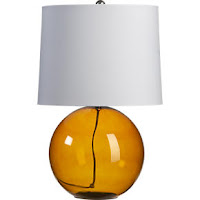Here in the personal finance world, we love the word free. Except there’s a catch with the word free. Free does not always mean better. Yes, not having to pay is certainly better than having to pay. Absolutely, 100%, every time. But a free item doesn’t always mean it’s a good item. And a not so good item means that you will eventually have to pay.
Here’s an example: When my grandfather passed away 3 1/2 years ago, my grandmother (who does not drive) offered my husband and me my grandfather’s car. Yes, it was a slightly older model that didn’t get a lot of use and baked in the hot South Florida sun but my father and uncle would take care of it on their trips down. We were in the market for a new-to-us car and this price of this one–free–was perfect. My grandma even offered to pay for the autotransport truck! How could this go wrong?
Well, it went very, very wrong. The car was delivered and we took it out for a little test run. It ran OK during the test run; OK enough that my husband felt comfortable driving it on his 45 minute commute. Monday morning, about 20 minutes after he left, I get a frantic phone call that the car died–completely died–on his way to work. He was able to get it off to the shoulder while he waited for a tow truck. For reasons completely unknown to me, he had the car towed to our house where he an our neighbor proceeded to inspect the engine and ultimately conclude that the transmission had died (I believe it was the transmission. In any event, it was some expensive part that goes under the hood and helps make the car run). So, after all of that, we now had an autococoon on our front lawn.
To have it towed to a mechanic to determine if my husband’s and neighbor’s prognosis was correct was going to cost us money. The parts were going to cost us money. We lost time off from work (fortunately, we get paid time off to use at our discretion) that we were trying to save. We couldn’t even get in touch with one of those money-for-junk cars companies to come and take it. We didn’t even care about getting money, we just wanted the car gone. It was just a big mess all around. Eventually we were able to get rid of it; I think the junk company gave us $200, just enough to recoup the towing costs.
You may be wondering why we didn’t opt to fix the car. For starters, we didn’t have access to the cash required to fix it and there was no way we were using credit. Second, the car wasn’t worth as much as the repairs were going to cost. Third, my husband was so pissed off with the thing that he would have been angry every time he drove it (at the time, I drove an SUV and there was no way he was taking an SUV on an 80 mile round trip commute every day. Gas costs would have been crazy). You would not like my husband when he is angry, so we junked the car. My sanity was better off. And you can’t put a price tag on my sanity.
Fortunately, we were able to get another year and half out of the car we were trying to replace and got a great deal on my husband’s new-to-him car last March. But we still have a car payment because of it. The purpose of accepting my grandfather’s car was to be able to have a newer car that would last long enough for us to save up the cash for a replacement. That plan clearly backfired.
At least now we know for next time–free does not always equal good.
Has free ever backfired on you?


